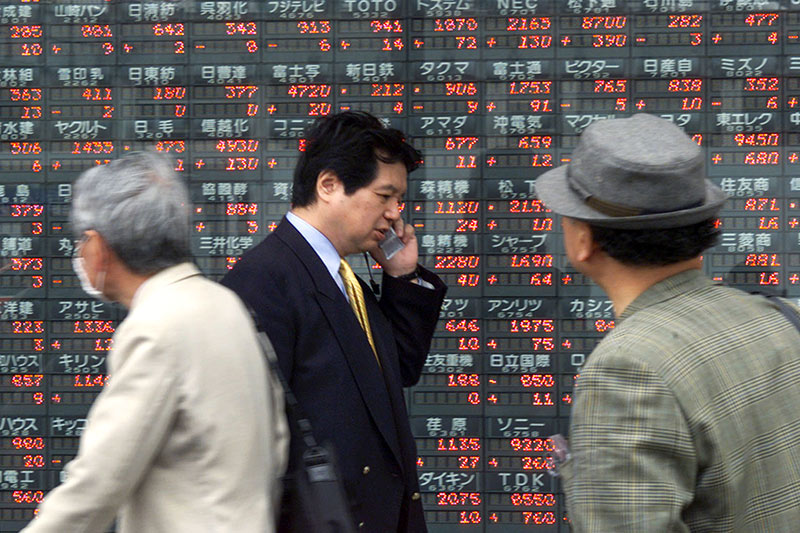Investing.com - Asian equities fell in morning trade on Tuesday despite the U.S. and Canada secured an agreement late Sunday night to replace the North American Free Trade Agreement (NAFTA) deal.
U.S. President Donald Trump will hold a news conference on the new trade deal later in the day in Washington.
“It is a great deal for all three countries,” Trump wrote on Twitter Monday. He added that the new deal could solve the many “deficiencies and mistakes in NAFTA, greatly opens markets to our Farmers and Manufacturers, reduce Trade Barriers to the U.S. and will bring all three Great Nations closer together in competition with the rest of the world.”
In Asia, Hong Kong’s Hang Seng Index was down 1.6% by 9:40PM ET (01:40 GMT) as traders returned from a long weekend. China’s Shanghai Composite and the Shenzhen Component are closed for holidays through the week.
The official manufacturing purchasing managers index stood at 50.8 in September versus 51.3 in August, data from China’s National Bureau of Statistics showed over the weekend. Analysts previously expected a median estimate of 51.2 in September. Meanwhile, the Caixin manufacturing PMI also declined to 50 from 50.6, the lowest since May 2017.
“The further slowdown in China’s official manufacturing PMI in September reflects the intensifying impact of the U.S.-China trade war on China’s manufacturing export sector,” said Rajiv Biswas, APAC chief economist at IHS Markit in Singapore. “The near-term outlook for the Chinese manufacturing export sector remains weak, albeit the Chinese government may apply some further stimulus measures to support growth.”
Meanwhile, the official service PMI picked up to 54.9 in September, data revealed.
“The government’s support policy will start to have an impact in the fourth quarter, which could offset the damage of the trade war,” said Gao Yuwei, a researcher at Bank of China Ltd.’s Institute of International Finance in Beijing. “The efforts to shore up infrastructure investment has been driving up construction activity, and services industries normally perform better in the third and fourth quarter.”
Elsewhere, Japan’s Nikkei 225 edged down 0.05%. A weaker yen was cited as supporting the index earlier in the day as the Japanese currency hit its weakest level against the dollar since last November.
Down under, Australia’s ASX 200 also traded 0.6% lower. South Korea’s KOSPI slid 0.5%.
